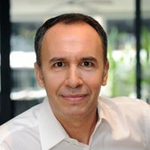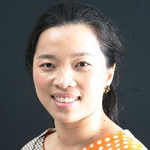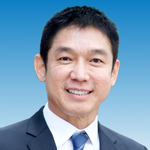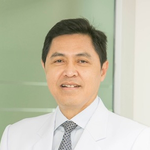Event Details
Panel 1
Thailand have achieved notable success in its commitment in ensuring that Thai citizens not only gain access to care, but also affordable care. Within two decades since its healthcare reform in 2002, Universal Coverage Health Scheme (UCHS) have enabled 99.5% of its population to enjoy free healthcare. Its achievements in healthcare provision have enabled Thailand to be crowned as the model of best practice for emerging nations to learn from.
While Thailand has excelled in providing healthcare coverage and increasing health literacy for its citizens, there remains aspects within the community that needs to be addressed before it can be fully classed as a health-inclusive society. The unequal distribution of health resources in geographically remote locations; developing a patient-centric healthcare system, and; caring after the neglected needs of its senior citizens, are some examples. This is where the Ministry of Public Health can partner with private stakeholders and leverage on existing outreach programmes and initiatives to care for the needs of the most vulnerable groups within the Thai communities. In addressing the existing gaps within the healthcare system, Thailand can continuously promote better health and better life for its citizens, giving Thais more reasons to smile, than one.
In this panel, the various stakeholders will discuss the following:
- Thailand's healthcare reform in 2002 enabled a wider pool of citizens to gain universal access to care. This greatly improved the access and affordability of care for the Thais. What are some of the learnings that other ASEAN Member States can gain from this experience?
- How does health inclusivity index enable ASEAN to achieve its Post-2015 Health Development Agenda (APHDA)?
- What forms of programmes can be rolled out to ensure that a patient-centric care is developed, and patient voices are heard in the decision-making process.
- How can stakeholders work together to ensure that community outreach programmes and initiatives like the SMILES campaign is sustainable in the long-term?
- Health inclusivity is not only about affordability and access to care, but also about inclusivity in care that is provided. How can the less-conventional index such as "cultural competency" be developed to help Thailand build a comprehensive and an even more inclusive healthcare system?
- How does HII and community outreach programmes help Thailand achieve their goal of developing a Thailand that is healthy & well? How do you see the continuity of such initiatives from now to 2036; and beyond?
Panel 2
With greater access and affordability to care, Thais are generally living longer. This is evident with an improvement in two-year survival rates for cancer and cardiac arrest. Yet, the incidence of cancer in Thailand remains high; and the country remains to have the highest prevalence of HIV across Southeast Asia, despite significant advances in its management. Over half of new HIV cases in Thailand are from key populations, thus innovative and effective strategies are needed to enhance the Recruit-Test-Treat-Prevent-Retain cascade for HIV prevention and care. For Liver cancer, otherwise known as Hepatocellular Carcinoma (HCC), it is identified to be the leading cancer in males and the third in frequency in females.
While vaccines and behavioural determinants play a major role in primary prevention, diagnostics and screening is pivotal in secondary and tertiary prevention. Especially critical is the role of diagnostics in detecting, managing, and treating both HCC and HIV. By developing diagnostics capability and encouraging the uptake of early screening, patients can benefit from curative care. Mortality rates from HCC can decrease by as much as 37%; annual new infections of HIV can also witness a reduction through routine screening and dedicated public health interventions. There are merits to diagnostics and screening. Enabling timely intervention and early treatment to increase survival rates of patients are just some of them.
In this session, the experts will share on the following:
- How can private stakeholders and community groups assist Thailand shift from a reactive care to preventative and curative care, closer to the populations that need most?
- Apart from gender distribution, geographical distribution is also prevalent for individuals diagnosed with HCC, with individuals residing in the North-eastern region having the highest incidence rate. How can we ensure that individuals living in HCC-prone regions can get access to screening for diseases?
- What are your views in prioritising testing & treating Hepatitis to prevent patient worsening to HCC?
- How can we reach the key populations who are still reluctant to seek care, due to stigma & discrimination and work with Thailand to leap over the last mile to reach the very close 95-95-95 UN Goals of HIV Elimination?
- How has COVID-19 disrupted hepatitis services? How has it also affected testing for infectious diseases?
- How did the pandemic change the landscape of routine screening and diagnosis for both communicable and non-communicable diseases?
- How does battling HCC and infectious disease help Thailand to achieve its goal of health & well-bring for all Thais by 2036? How do you foresee the diagnostics landscape in Thailand both in the short-term and long-term?
- What is the role of community-based testing in the diagnostic landscape in the future?
Event Details
Speakers

Dr Athaporn Limpanylers (Opening Speech & Panel 1)
Deputy Secretary-General at National Health Security Office

Jean-Francois Couve (Panel 1)
General Manager Thailand at Haleon

Elaine Ng (Presentation Sharing on Health Inclusivity Index)
Head of Corporate Affairs, Wider Asia at Haleon

Suwanna Ruamsanitwong (Presentation Sharing: Access to Health Care; bring to life with ‘Smile Can’t Wait’ Campaign)
Senior Brand Manager at Haleon

Sompit Suwanswage (Presentation Sharing: Health Literacy & Education in Webinars with HCPs)
National Expert Sales Manager at Haleon

Associate Professor Dr.Chuchai Anunmana (Panel 1) - TBC
Head of prosthodontic department, Department of Prosthodontics at Faculty of Dentistry

Krung Surawetsuntorn (Panel 1)
President at Thai Pharmacist Association

Pucknalin Bulakul (Panel 1)
Managing Director of Zuellig Pharma Thailand

Elaine Ng (Moderator - Panel 1)
Head of Corporate Affairs, Wider Asia at Haleon

Chris Humphrey (Closing Remarks)
Executive Director of EU-ASEAN Business Council

Dr Opas Karnkawinpong (Opening Remarks - Panel 2) - TBC
Permanent Secretary at Ministry of Public Health

Dr Asa Torkelsson (Keynote Address - Panel 2) - TBC
Country Director of UNFPA, Thailand

Pichetpong Srisuwankul (Panel 2)
GM at Roche Diagnostics Thailand

Nasinun Phatsaphon (Panel 2)
Head of Marketing & Business Development at Abbott

Professor Tawesak Tanwandee (Panel 2)
MD, Head of Division of Gastroenterology, Faculty of Medicine Siriraj Hospital at Mahidol University
- SK
Surapol Kohreanudom (Panel 2) - TBC
Deputy Director of Bureau of AIDS TB and STIs Thailand
- DI
Dr Sopon Iamsirithaworn (Panel 2) - TBC
Department of Disease Control, Thailand Ministry of Public Health at US-CDC Collaboration

Chris Humphrey (Moderator - Panel 2)
Executive Director of EU-ASEAN Business Council
